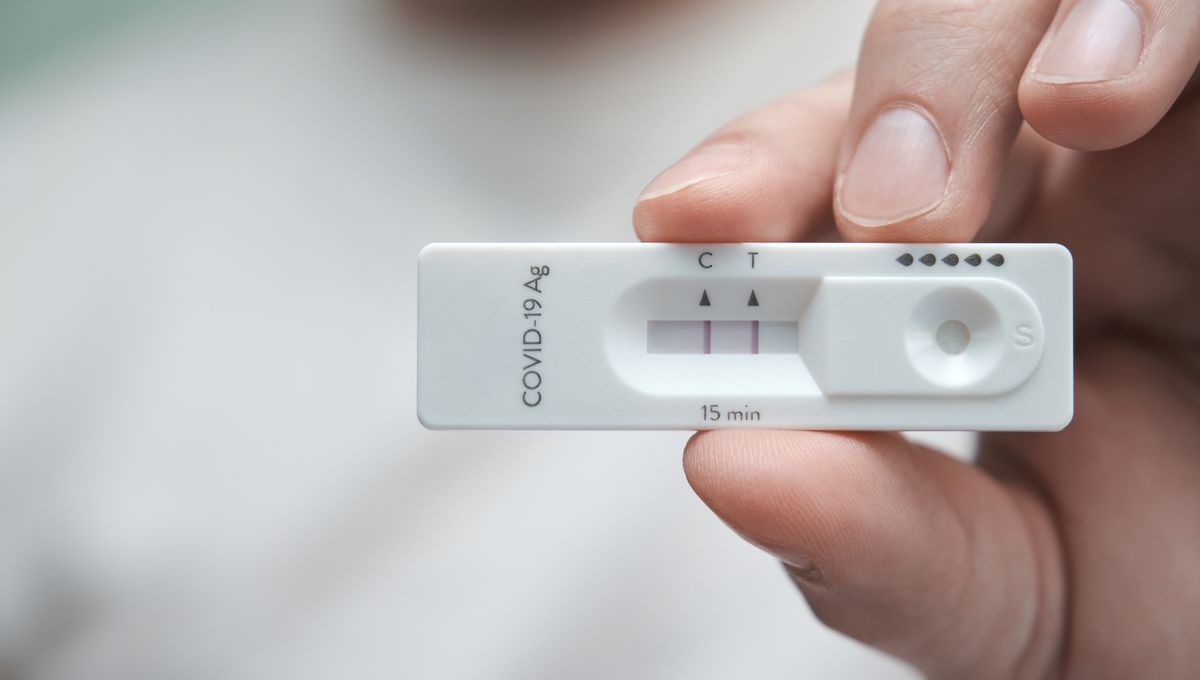
A new COVID-19 variant has recently arrived on the scene, and while it hasn’t yet risen to dominance, experts suggest that XEC could be the next big variant to watch.
2024 has seen something of a “summer of COVID”. The virus made its presence known at several of this year’s major sporting events, including the Paris Olympics and the Tour de France, and the US has been seeing a steady rise in cases in recent weeks.
While SARS-CoV-2 is not strictly a seasonal virus, many people will be keeping an eye on COVID stats as the Northern Hemisphere moves towards winter, and the smorgasbord of other infections that tend to surge at this time of year (hello flu, it’s been a while). So, what’s new in COVID-land?
Well, the dominant variant in the US, where the Centers for Disease Control and Prevention (CDC) continues to collect detailed data, is still a member of the KP.3 lineage, KP.3.1.1. The latest data at time of writing suggest it’s responsible for 52.7 percent of positive COVID tests.
The COVID virus family tree is reaching soap-opera levels of complexity at this point, so here’s quick refresher. The KP.3 variants emerged as members of the group of so-called FLiRT variants, which are themselves descended from JN.1. There was the original KP.3, which came to prominence over the other FLiRT variants and was given its own moniker, FLuQE. The next iteration, KP.3.1.1 (which some are calling deFLuQE) came along when the original FLuQE variant picked up a deletion mutation.
The reason why we’ve not had a new Greek letter for a while is that we’re technically still on Omicron – all of these are subvariants of the original Omicron lineage, and they’re not far removed enough to warrant a new alphabetical designation.
KP.3.1.1’s dominance is not forecast to change any time soon, thanks to its mutation that makes it particularly immune-evasive. But there is a new variant emerging in Europe that has piqued experts’ interest. It’s called XEC, and it was reportedly first identified in Germany back in June before spreading steadily to several other countries.
“XEC is definitely taking charge,” Dr Eric Topol, director of the Scripps Research Translational Institute, told the Los Angeles Times.
“We’ll really have to watch – because the overall info on it is not super robust now – but I would imagine over the next couple of weeks, particularly if it starts to creep up higher and higher, we will be hearing a little bit more about it,” Dr Elizabeth Hudson, regional chief of infectious diseases for Kaiser Permanente Southern California, added.
In a recent update for the American Medical Association, Dr Andrea Garcia, Vice President of Science, Medicine and Public Health, agreed that XEC is becoming one to watch.
“I think the other thing to keep an eye on, and we know doctors and scientists are keeping an eye on this as well, is yet another subvariant, and that is XEC that could surpass KP.3.1.1 in the coming weeks,” Dr Garcia said.
The good news is that the risk of severe disease and death from these latest variants is greatly decreased compared with the early days of the pandemic, thanks in part to immunity from vaccines and previous infections.
COVID shots have recently been updated to more closely align with the circulating variants, and the message remains that keeping up to date with your vaccines is the single best way to avoid a severe case of COVID-19. US households will also be offered free test kits once again this winter, to help answer the eternal question of the season: is it a cold or is it COVID?
As for the symptoms of the newest variants, the CDC’s list of signs to watch for remain unchanged, and include a cough, fever, sore throat, and congestion.
Source Link: What Is "XEC"? All You Need To Know About The Latest COVID-19 Variant